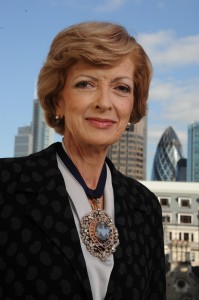Any comparison of Kazakhstan and the United Kingdom would bring to light many differences between the two countries: one is an island kingdom and the other is the world’s largest landlocked country. One is a rapidly developing nation, while the other is a G7 country and part of the European Union, but both share a global outlook.
 Yet, as an elected Lord Mayor and as a lifelong international lawyer specialising in infrastructure projects, my view is that Kazakhstan and the United Kingdom have much in common. The delegation and I made this trip to Astana and Almaty in hopes of deepening the bonds between our two nations.
Yet, as an elected Lord Mayor and as a lifelong international lawyer specialising in infrastructure projects, my view is that Kazakhstan and the United Kingdom have much in common. The delegation and I made this trip to Astana and Almaty in hopes of deepening the bonds between our two nations.
This visit, of course, builds on those of my predecessors, Lord Mayors Wootton, Stuttard and Luder.
Our first shared interest is in building a good business environment together, as business is a crucial component of the bedrock of any sustainable society. Much work in this area has already been done. Kazakhstan and Astana are key partners for the U.K. and London; over the next decade, there will be an estimated $50 billion dollars worth of commercial opportunities in the energy sector alone. The U.K. is already one of largest investors in Kazakhstan with more than $15 billion invested. On the London Stock Exchange, you can already find 20 Kazakhstan based companies on the main and AIM markets, with £500 million ($816 million) raised on AIM alone. London is a world-leading international financial centre and Almaty, with ambitions to establish itself as a regional financial hub, is trying to build links and learn from London’s experience. My view is unashamedly globalist: Almaty and London are not competitors, but rather two cities that can nourish each other and grow their expertise, infrastructure, markets and investment pools in a mutually beneficial direction.
Over the last two decades, the U.K. has been one of largest investors in Kazakhstan with BG Group, our largest British investor, playing a significant role in our growing relationship. Part of that partnership is BG’s contribution to the new Centre for Energy Research – including the inspirational Scientific Library and Café. Nazarbayev University and the Centre for Energy Research in particular will make major contributions to U.K.-Kazakhstan cooperation. Our links are much broader than one firm, and the future energy focused EXPO 2017 in Astana, will bring many UK-based firms to begin and deepen relations with the region.
Kazakhstan’s leadership has rightly emphasised the need to develop the country’s human capital because of the economic, cultural and political benefits to be reaped from increased partnership between the two countries.
Foreign investment is a key issue for Kazakhstan as it tries to diversify its economic base, establish its competitive edge and acquire important new technologies and key infrastructure. Not only is the U.K. one of largest investors in Kazakhstan, but London is a major global centre for investors from around the world with many global funds and fund-managers based there.
The Kazakh economy is foreign direct investment (FDI) intensive, with an extremely favourable FDI/GDP ratio, one of the highest among rapid-growth markets. This means that sharing my know-how of how to please global funds with my Kazakhstan colleagues was an important aspect of our recent trip. Investors focus on such issues as investment governance, meeting the interests of all shareholders and transparency in the marketplace. The U.K. is working hard to help establish stronger governance, because businesses everywhere value stability, predictability and clarity, free and open markets and a level playing field for both international and local businesses. Investors want transparency and good standards of corporate governance and they are, as you would hope of people often charged with looking after our pensions, quite dispassionate about choosing or dropping a home for their capital.
In our complex financial world, consulting experienced professionals to further your own knowledge and manage your assets is a necessity. Not taking full advantage of consulting services, even for the sake of saving money, is not wise. Many global experts in law, project delivery, public-private partnership, infrastructure, etc., are based in London. Working with London based global experts can often be the easiest way to access global expertise. Many non-U.K. firms are based in London because of its connectivity, central time zone and of course, its access to the English commercial legal system, which is recognised internationally as being fair and efficient.
One relatively new entrant to the global stage is Islamic finance, a field in which London is developing considerable expertise. Islamic finance is estimated to be a $1.45 trillion industry worldwide. Islamic finance has shown resilience and the U.K. is the leading Western provider of Islamic financial services and has access to a globally buoyant sukuk market. Issuance is up two-thirds to $139 billion in 2012 and there are now 49 sukuk bonds with a combined value of $34 billion listed on the London Stock Exchange. Additionally, seven exchange traded funds and two exchange traded products are also listed on the London market. I am working closely with TheCityUK and UKTI on their activities in this field.
Opportunities for U.K. based firms and Kazakhstan to expand relations are both plentiful and lucrative and I was very glad to represent London during my most recent visit.
The author is the Right Honourable Lord Mayor of the City of London.
